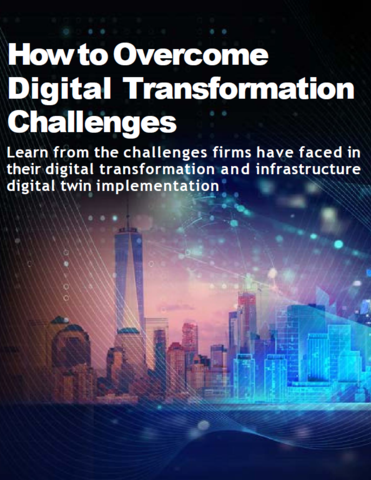Five AI use cases that will define businesses of the future

David Semach at Infosys Consulting describes how businesses will be able to use AI to innovate and compete
Post-pandemic, we are seeing a huge demand for digital talent, enhanced innovation, and sustainable and ethical strategies for emerging technologies. Organisations can no longer take an experimental approach to their AI and analytics initiatives, with digital leaders leveraging technology to disrupt and gain market share in traditional industries.
Here are five AI use cases I expect to see develop for businesses to innovate and compete in the next normal.
Delivering a ‘Total Experience’
Transitioning from AI as a source of innovation to a driver of business value is something that many companies still struggle with. Leaders must move away from thinking about how to apply AI in the short-term and consider their boardroom’s long-term goals, focusing on solutions that explicitly deliver on an improved ‘Total Experience’ (TX).
TX contains the entire company experience – employee, customer, and user. As such, businesses will need to take a holistic look at their AI programs to ensure they explicitly deliver ROI across EX, CX and UX.
They will also help organisations to forecast their journey with AI to make sure they are investing in a program that is simple enough to realise value from immediately yet mature enough to grow with the enterprise as their needs for AI become more complex.
Leading the ethical AI charge
We are seeing an increased urgency for our clients to deploy smart AI while ensuring privacy safeguards, preventing bias in algorithmic decision-making, and meeting guidelines in highly regulated industries.
Despite substantial investments in governance, many organisations still lack visibility into the risks their AI models pose and what, if any, steps have been taken to mitigate them. Consequently, businesses will need to consider how to deliver AI responsibly and ethically in line with any new regulations.
Key to the ethical AI charge is data governance; in most instances of unethical AI, the problem stems from the data used to train the AI. Data governance doesn’t just mean more data; it means collecting, transforming, and annotating the right data, both structured and unstructured.
Revolutionising education with the metaverse
In the next five to ten years, there will be a dramatic investment into the digital world of the metaverse, which has so far primarily dominated gaming and social spaces. However, we are already seeing accelerating cases of using the metaverse’s 360-degree immersive environment to revolutionise education and training.
We are working with clients to bring a holistic, joined-up approach to AI that allows academic institutions to change the way services are delivered, improve student satisfaction and retention, as well as reduce cost to serve. This includes creating a virtual space for tutors and students from across the world to meet and interact, as well as AI-based assistants to improve service to students.
While the business community is slower to progress with the potential of the metaverse, it has extensive applications for remotely upskilling employees; in the future, companies may choose to conduct all their training programs remotely in the cloud.
Transforming organisations through simulation
As we emerge from the pandemic, more organisations will utilise simulation to better prepare for unexpected shocks and to build an intelligent and resilient supply chain. For example, digital twins of an organisation provide a shared picture for key leadership, allowing HR leaders to experiment with several key variables, testing different scenarios and contingencies across space management, employee utilisation and facilities.
Simulation also has the potential to transform the FMCG space, significantly accelerating time to market for new recipes and products. Right now, we are helping one of our clients to rollout digital AI simulation labs for their R&D team to simulate new recipes and consumer reactions in real-time.
Such solutions empower R&D and brand managers to predict outcomes of product trials, saving significant time and cost when compared to physical prototypes.
Filling the AI skills gap
When investing in technology, business leaders are investing as much in their people as they are in the tech itself, and many companies will find that the availability of technical talent is one of their biggest bottlenecks to AI success. This means establishing the right talent mix and embedding AI ownership and accountability into all teams.
Equally, companies will likely look towards pre-existing tools that deliver significant ROI in a short period of time – for example, out of the box AI offerings that allow for the organisational, governance and technical enablement of a Centre of Excellence (CoE) that can deliver value at scale in weeks rather than months.
For all of these use cases, businesses will need to reskill and retool: teams will need guiding towards value-driven repeatable and explainable approaches, with teaching on new best practices for future use cases.
In the coming years, tools for developing and using AI responsibly, accurately, and ethically will be needed - helping businesses solve their most complex challenges by leveraging the power of technology for an increasingly disrupted world of work.
David Semach is Infosys Consulting’s EMEA Head of AI and Automation
Main image courtesy of iStockPhoto.com

Business Reporter Team
Most Viewed
23-29 Hendon Lane, London, N3 1RT
23-29 Hendon Lane, London, N3 1RT
020 8349 4363
© 2024, Lyonsdown Limited. Business Reporter® is a registered trademark of Lyonsdown Ltd. VAT registration number: 830519543





